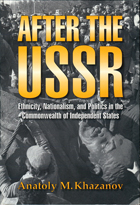
A world-renowned anthropologist, Anatoly M. Khazanov offers a witty, insightful, and cautionary analysis of ethnic nationalism and its pivotal role in the collapse of the Soviet empire.
“Khazanov’s encyclopedic knowledge of the history and culture of post-Soviet societies, combined with field research there since the 1960s, informs the case studies with a singular authoritative voice. This volume is destined to be an absolutely necessary reference for the understanding of ethnic relations and the politics of minorities in the ex-USSR into the next century.”—Leonard Plotnicov, editor of Ethnology
First Paperback Edition
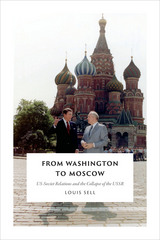
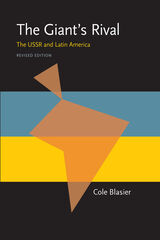
This revised edition includes chapters analyzing developments since 1983. Blasier views the origins of the Sandinista revolution, and its relation to international Communism, and how the Nicaraguan government has grown dependent on Soviet oil, arms, and economic and political assistance. He also describes the growing relations between the New Jewel Movement in Grenada and Moscow before it was toppled by the U.S. invasion. Blasier explains how U.S. policies have affected Soviet outcomes and makes proposals for protecting and advancing U.S. interests.

This book analyses the causes of armed conflicts in Southern Africa during the Cold War. It examines the influence of the various external forces in the region during this period and their relationship to local movements and governments.
The book focuses on states experiencing violent internal conflict and foreign intervention, that is Angola, Mozambique, Namibia , South Africa and Zimbabwe.
The author provides an unique history of the key part that the Soviet Union played in these developments. Spanning 30 years, the book explores how each country struggled for genuine independence against colonialism and apartheid and their place in the wider conflicts encompassed by the Cold War.
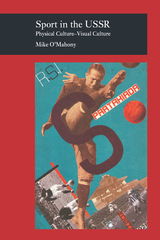
The Soviet state sponsored countless programs to promote sporting activities, even constructing a new term, fizkultura, to describe sports culture.
With Sport in the USSR, Mike O’Mahony asserts that the popular image of fizkultura was as dependent on its presentation as it was on its actual practice. Images of vigorous Soviet sportsmen and women were constantly evoked in literature, film, and folk songs; they frequently appeared on the badges and medals of various work associations and even on plates and teapots. Several major artists, in fact, made their careers out of vivid representations of sports.
O’Mahony further examines the role that fizkultura played in the formulation of the novyi chelovek, or Soviet New Person, arguing that these images of the sporting life not only promoted the existence of this national being but also articulated the process of transformation that could bring him or her into existence. Fizkultura, O’Mahony claims,became a civic duty alongside state labor drives and military service.
Sport in the USSR is a fascinating addition to current debates in the fields of sociology, popular culture, and Russian history.
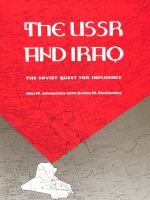
Drawing on ten years of research in Western, Arab, and Soviet sources, Smolansky analyzes the complex issues at the center of Soviet-Iraqi relations from 1968 through 1988, including the nationalization of the oil industry, the Kurdish question, the Iraqi Communist Party, the affairs of the Persian/Arabian Gulf, and, ultimately, the war between Iraq and Iran.
Smolansky concludes that Iraq has never been under the dominant influence of Moscow, nor has it even been a loyal Soviet ally. In fact, Iraq has managed to reap major benefits from the relationship without losing its autonomy or sacrificing its major interests. The author discusses the Soviet Union and Iraq within the larger framework of the nature of influence relationships between great and small powers.
READERS
Browse our collection.
PUBLISHERS
See BiblioVault's publisher services.
STUDENT SERVICES
Files for college accessibility offices.
UChicago Accessibility Resources
home | accessibility | search | about | contact us
BiblioVault ® 2001 - 2024
The University of Chicago Press









